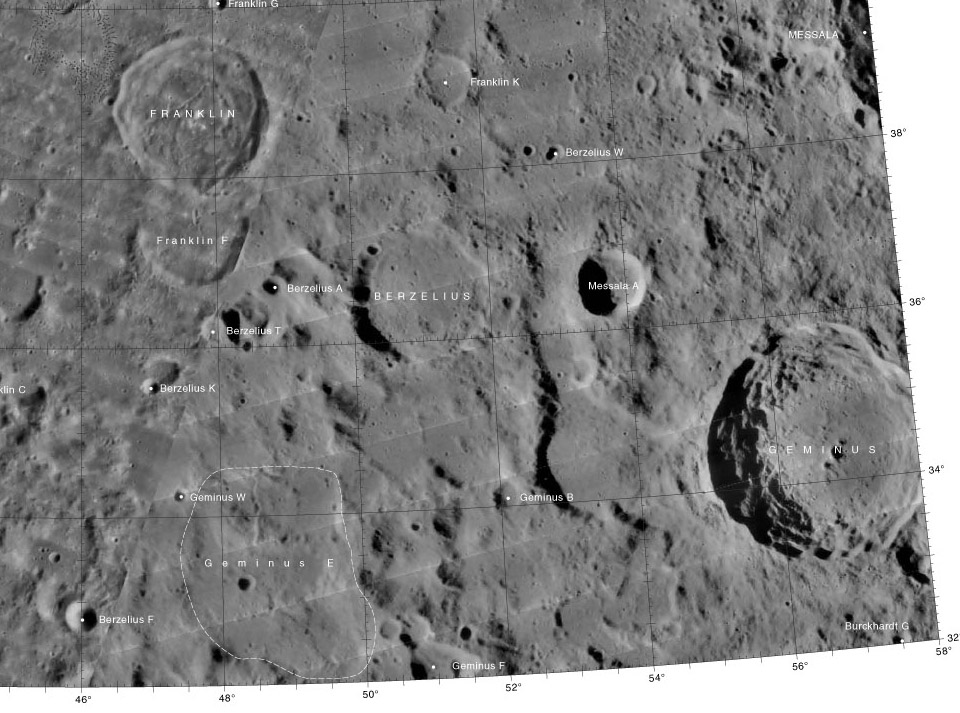Difference between revisions of "April 24, 2018"
(Created page with "__NOTOC__ =Mapping Names= Originally published December 16, 2008 <!-- Start of content --> <!-- ws:start:WikiTextHeadingRule:1:<h1> --> <!-- ws:start:WikiTextLocalI...") |
|||
| Line 16: | Line 16: | ||
<br /> | <br /> | ||
<strong>Related Links</strong><br /> | <strong>Related Links</strong><br /> | ||
| − | Rükl plates [ | + | Rükl plates [https://the-moon.us/wiki/Rukl+15 15] and [https://the-moon.us/wiki/Rukl+16 16]<br /> |
<br /> | <br /> | ||
<p><b>Yesterday's LPOD:</b> [[April 23, 2018|Main Lunar Crater Sequence Animated]] </p> | <p><b>Yesterday's LPOD:</b> [[April 23, 2018|Main Lunar Crater Sequence Animated]] </p> | ||
Revision as of 18:02, 18 August 2018
Mapping Names
Originally published December 16, 2008

SE corner of LAC 27 from USGS Digital Atlas of the Moon. The fact that the non-crater Geminus E still exists as a name shows that lunar nomenclature needs a modern updating!
Lunar maps have been the only way to link nomenclature to specific lunar features. Grimaldi's 1651 map carried Riccioli's names - the basis for the nomenclature we use today. Beer and Mädler's map greatly increased the amount of surface detail and also featured a great expansion of nomenclature. The IAU's 1935 revised nomenclature was carried on Blagg and Müller's charts which follow the Mary Blagg of this century - and her maps are much better!
Chuck Wood
Thanks to Jim Mosher for letting me know of this new map series!
Technical Note
This new LO atlas is not aimed at observers, who see the Moon with foreshortening every where except the sub-Earth point, but at desk explorers who need a consistent vertical view of the surface no matter where it is. This will be an invaluable reference and I plan to print all 144 sheets out (when Jenny finishes them) and bind them into a unique atlas. UPDATE: I tried printing out some of the sheets. The names (and especially the letters) are too small to be seen on a typical 8.5 x 11" sheet of paper.
Related Links
Rükl plates 15 and 16
Yesterday's LPOD: Main Lunar Crater Sequence Animated
Tomorrow's LPOD: The Oklahoma Orbiter
COMMENTS?
Register, Log in, and join in the comments.



